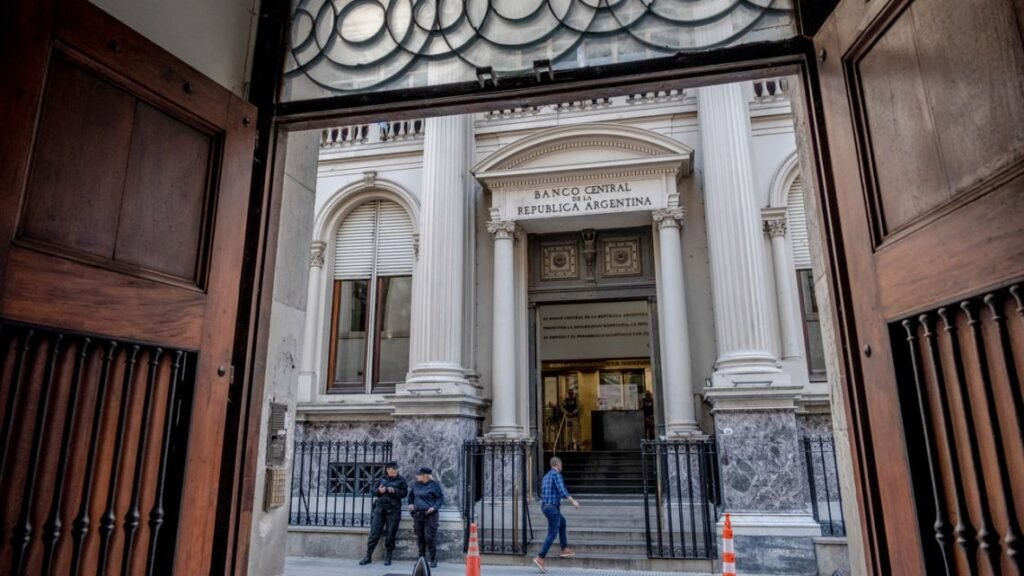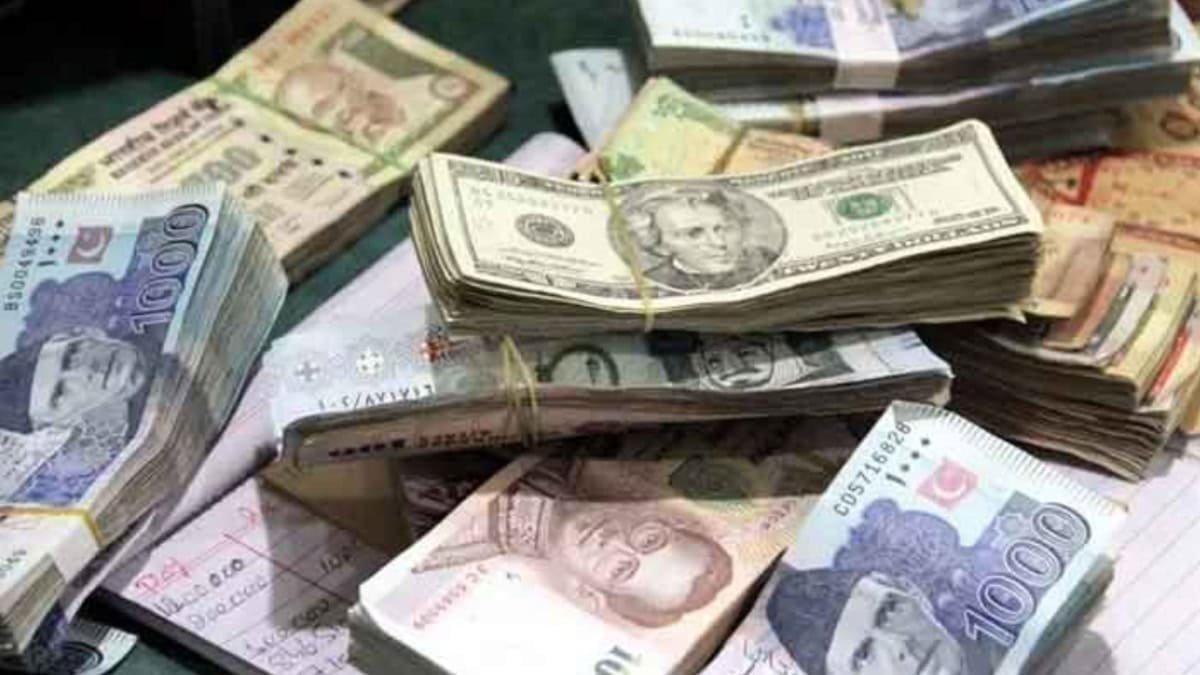Despite a chorus of calls from investors, President Javier Milei and his advisers are hesitant to rapidly build up Argentina’s international reserves, let the peso float and relax currency controls.
The government’s landslide victory in the mid-term elections last month has given Milei a window of opportunity to advance a new foreign-exchange framework, according to Argentine investors. That could include reserve purchases, greater flexibility and a weaker exchange rate to help balance Argentina’s external accounts.
But Economy Minister Luis Caputo, Central Bank Governor Santiago Bausili and others are resisting the changes after the government’s peso intervention ahead of the vote. Factors like the country’s illiquid FX market and volatile money demand contribute to the reluctance, as does the fear of resurgent inflation.
“I’m not going to rush out and buy dollars like a madman and trigger a jump in the exchange rate,” Milei said in an interview last week with a local streaming platform. “As the economy expands, we will buy dollars. But we’re going to keep a close eye on the inflation rate every day.”
Investors argue that a tightly controlled peso holds back the economy, which had slumped before the midterm elections, only to regain pace in recent weeks. Economists and analysts see risks stemming from a strong peso at a time when Central Bank reserves are lacking.
“There’s an exchange-rate level we shouldn’t cross – and we’re quite close to it,” said Alberto Ades, a director at NWI Management LP. “If you see people flying to Miami and coming back with suitcases full of goods, and construction – which has always been the engine of post-devaluation recoveries in Argentina – still isn’t picking up, that tells you the exchange rate is wrong,” he added.
The International Monetary Fund also would like to see the government take action and buy dollars. “We have stressed the need to accelerate reserve accumulation efforts to help better manage volatility and to further strengthen market confidence,” IMF Spokesperson Julie Kozack said last week.
The Central Bank’s net foreign reserves – its total minus debt liabilities – stood at negative US$12.4 billion as of November 7. That puts it about US$9 billion short of its IMF target for the end of the year, according to estimates by local brokerage Max Capital. The government also faces a US$4.5-billion maturity on its global bonds in January, which it could cover using private financing following the drop in Argentina’s country risk after the October elections, among other options. Since then, dollar inflows have gone up as companies have sought to tap external financing.
Caputo and Bausili have set out various reasons for why the peso isn’t ready to be set free. One of them: “We cannot let the currency float when our political alternative continues to be communism,” the minister said last week. Milei’s party was dealt a significant blow in regional elections in Buenos Aires Province in September, resulting in a win for the local Peronist movement that weakened the government going into the midterm vote.
Worries about excess peso supply are also playing a major role. “Today the government isn’t buying dollars because there’s an excess of pesos and the goal is to lift capital controls. If you lift the controls now, you could trigger a run against the peso and stoke inflation,” said Ramiro Castiñeira, a member of the government’s advisory council.
To avoid that, peso demand needs to rise, reducing the amount of money overhang or excess savings, he said. The overhang currently stands at around 1.5 percent of gross domestic product, down from about 10 percent in November 2023, before Milei came to power.
Some in the market think the government could pivot abruptly in the weeks ahead and start buying dollar reserves as Argentines tend to need pesos for holiday spending. In fact, the Treasury’s dollar deposits at the Central Bank rose by US$117 million last week, according to figures published on the institution’s website – underscoring the incipient but still slow pace of reserve accumulation.
“December typically brings higher money demand for seasonal reasons,” said Daniel Chodos, a partner at Dhalmore Capital in Buenos Aires, adding that this could lead the government to boost reserves. Other factors, such as the settlement of farm sector exports or an unwinding of positions following overseas bond sales, will also play a role, said Fabio Saraniti, a partner at Win Securities, a brokerage firm.
Officials say it will happen, but on their terms. “We are going to accumulate reserves – and more than anyone might be thinking,” Caputo said last Thursday, adding that purchases will track rising peso demand. “Reserve accumulation will be a consequence of the economic program, not its motor. The objective can’t be accumulating reserves at any cost in a way that could put economic stability at risk,” Bausili said Wednesday at an economics symposium.
Still, the government only has so much time, said Juan Manuel Pazos, an economist at local brokerage One618. If the administration keeps the current framework, “the ghost of the 2027 election is bound to weigh on policy measures, capping the government’s ability to switch lanes to a consistent regime at that time,” he said.
by Ignacio Olivera Doll, Bloomberg







